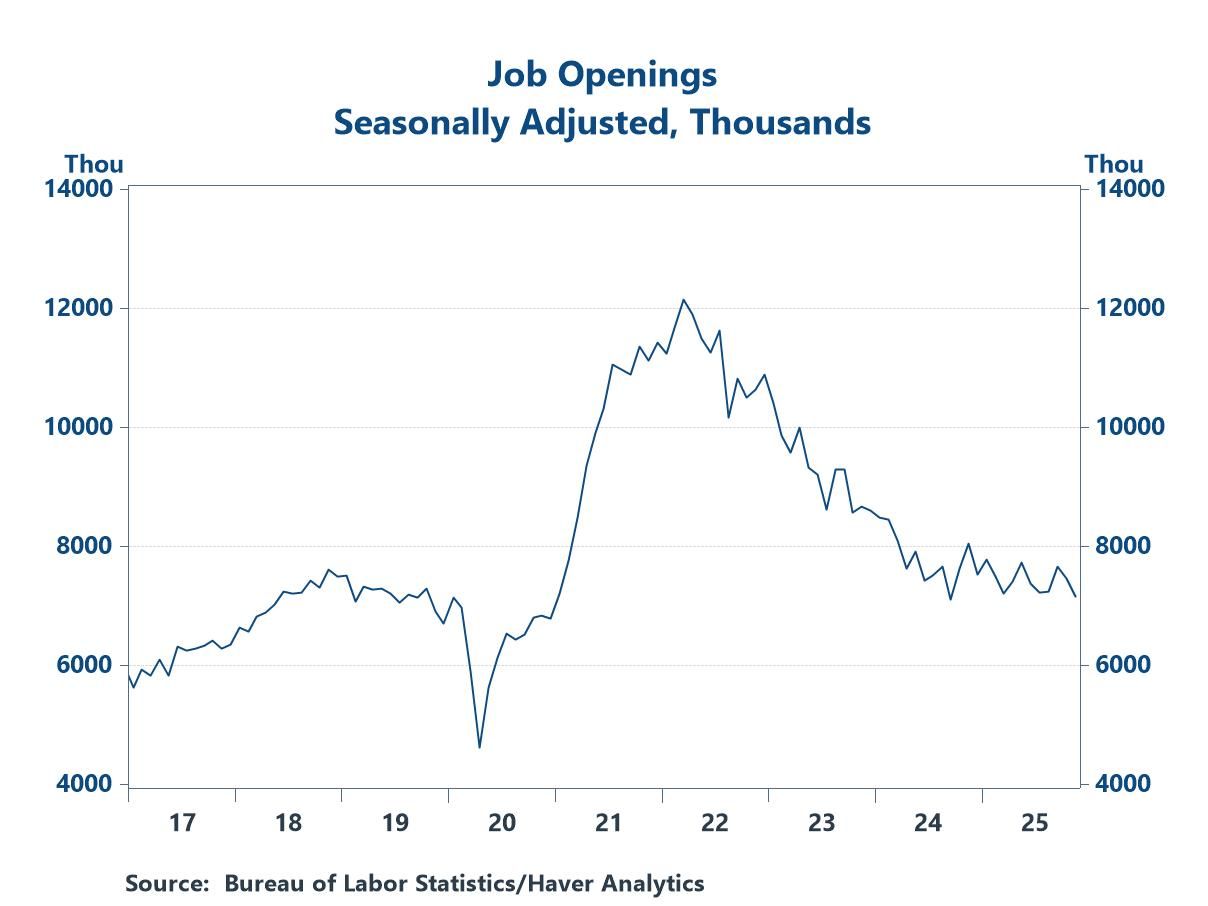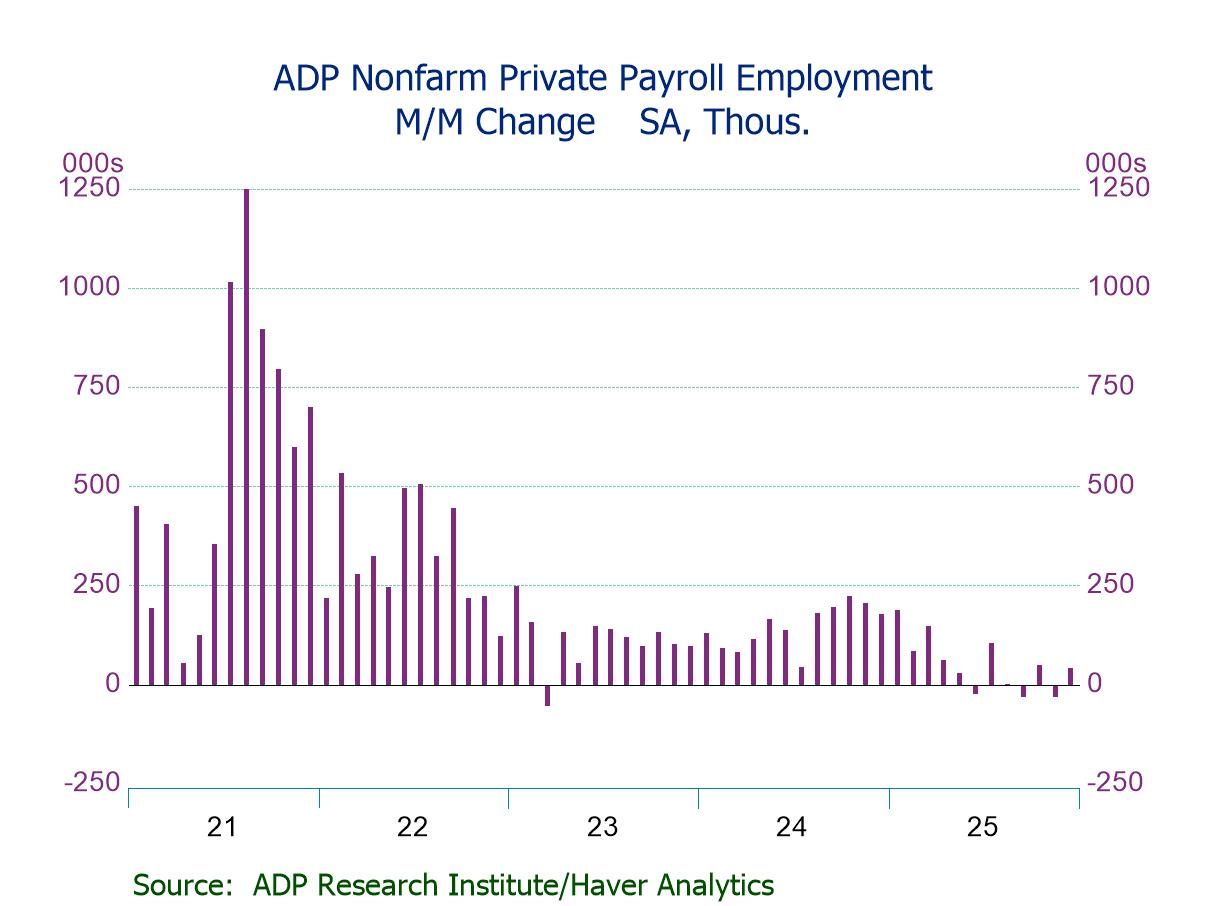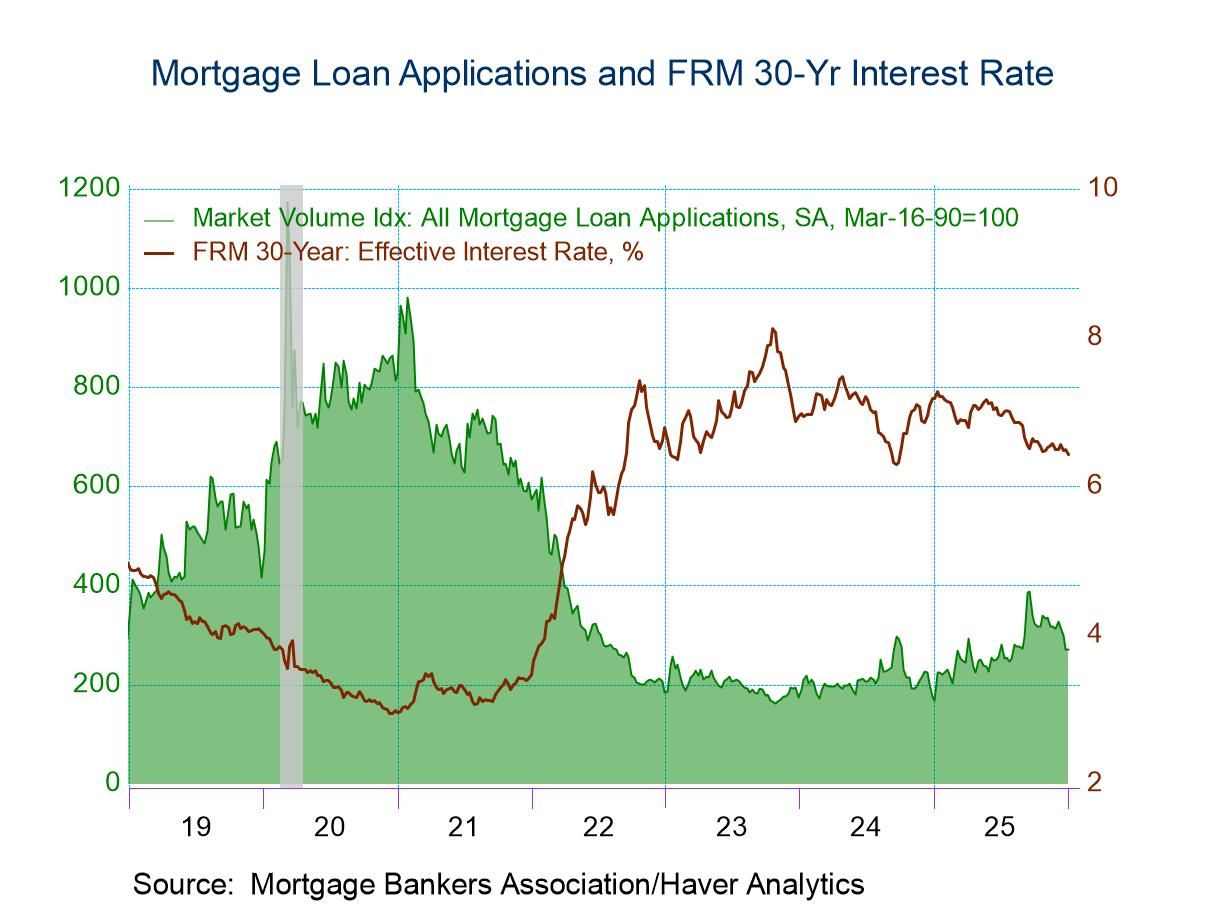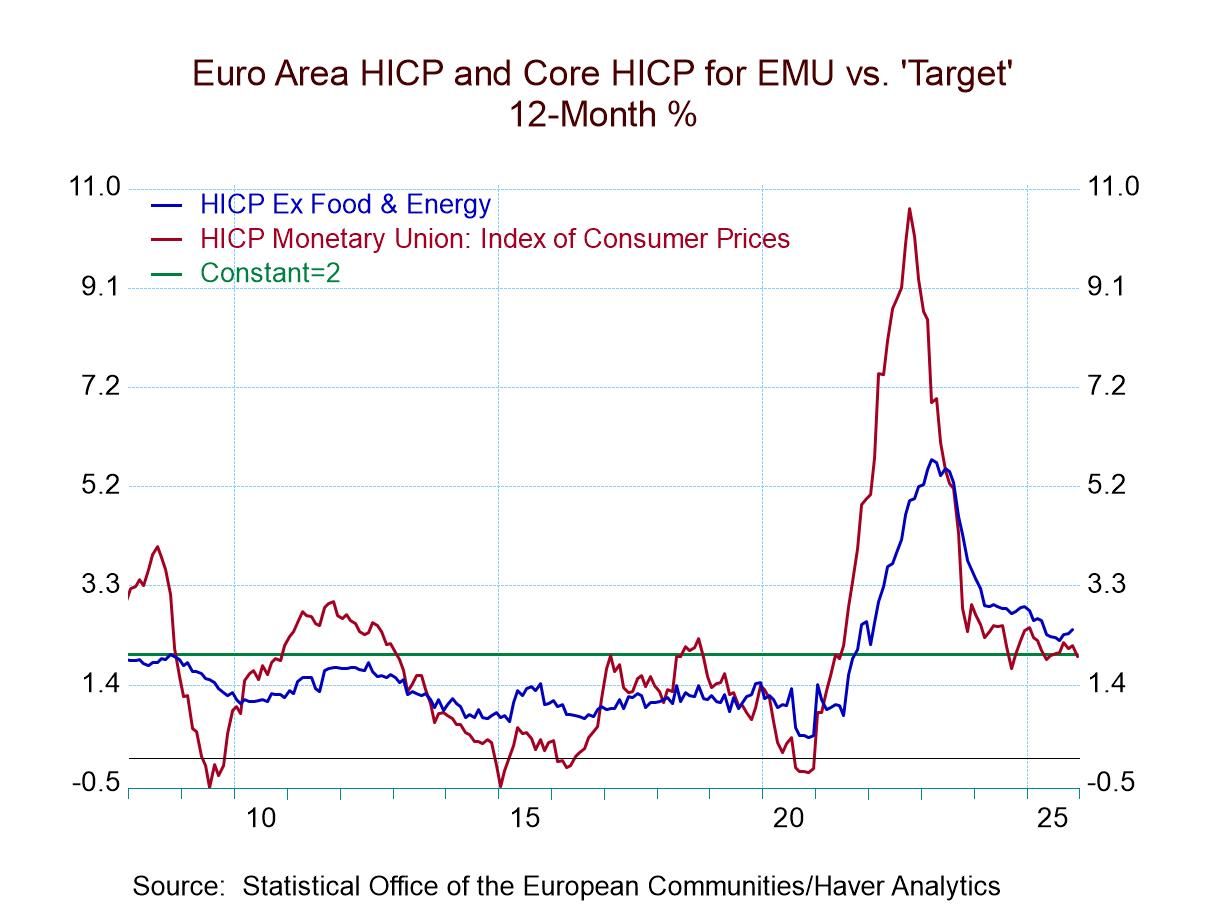 Global| Dec 17 2002
Global| Dec 17 2002Inflation in the U.K. and Implications for Monetary Policy
Summary
Inflation in the United Kingdom as measured by the Retail Price index rose 2.7% in November from a year ago, the sharpest rise since January 2001. Prices of housing expenditures, which rose 6.4%, and gasoline and oil, which rose 4.1%, [...]

Inflation in the United Kingdom as measured by the Retail Price index rose 2.7% in November from a year ago, the sharpest rise since January 2001. Prices of housing expenditures, which rose 6.4%, and gasoline and oil, which rose 4.1%, accounted for much of the increase.
In conducting its monetary policy, the Bank of England focuses on the less volatile “all items less mortgage interest” component of the index. The Bank’s current target rate for this measure is 2.5%. The “all items less mortgage interest” index rose 2.8% in November from a year ago and was the sharpest rise since November 1997. It was also the first time since January 2002 that the rise exceeded the target rate. In its latest quarterly report on inflation, the Bank predicted that inflation would remain above its target for most of next year, suggesting that any changes in the current base rate of 4% are more likely to be on the upside.
| Retail Price Index (Annual % Changes) | Nov | Oct | Y/Y | 2001 | 2000 | 1999 |
|---|---|---|---|---|---|---|
| All items | 2.0% | 2.0% | 2.7% | 1.8% | 2.9% | 1.6% |
| All items ex mortgage interest | 2.8% | 1.4% | 2.8% | 2.1% | 2.1% | 2.3% |





